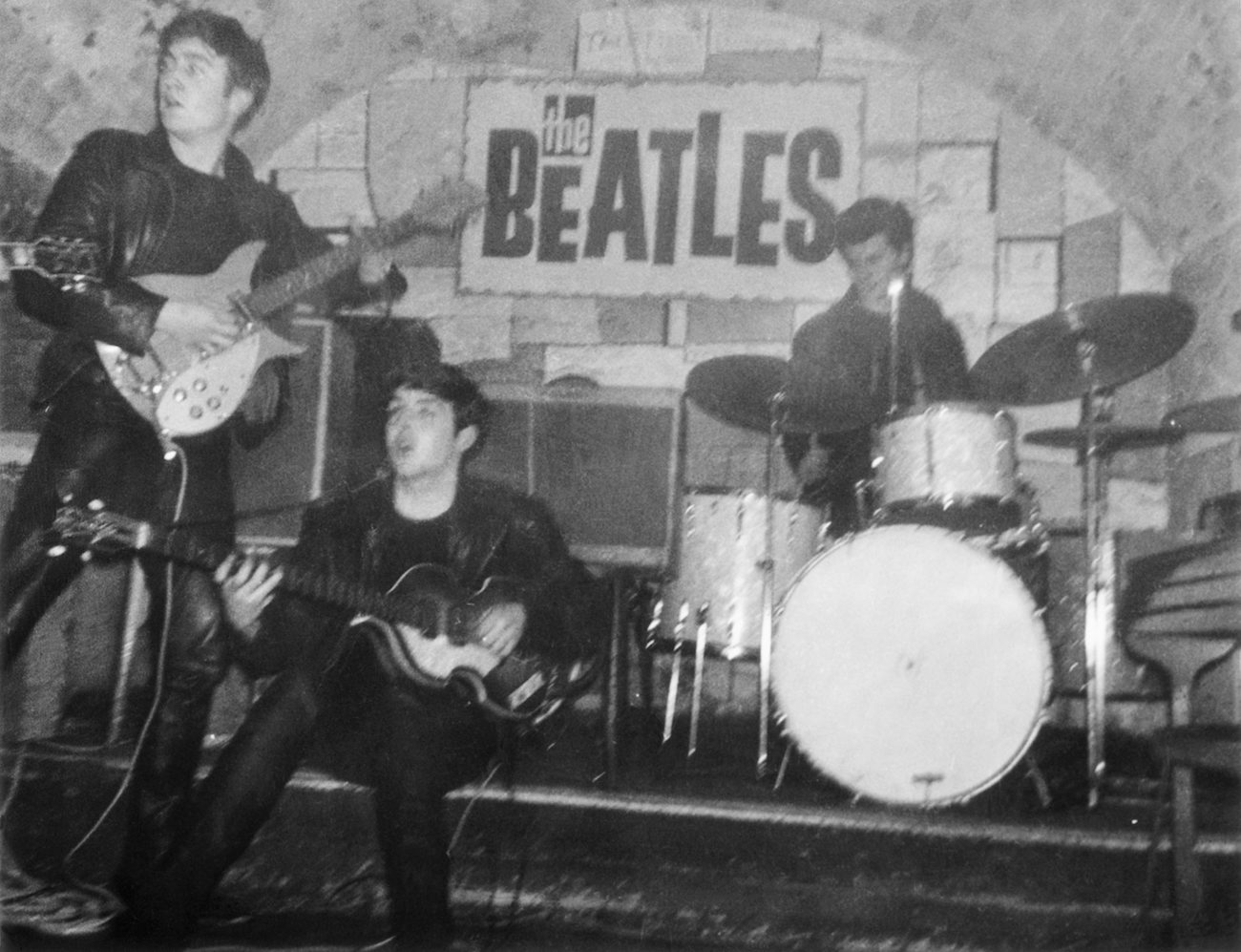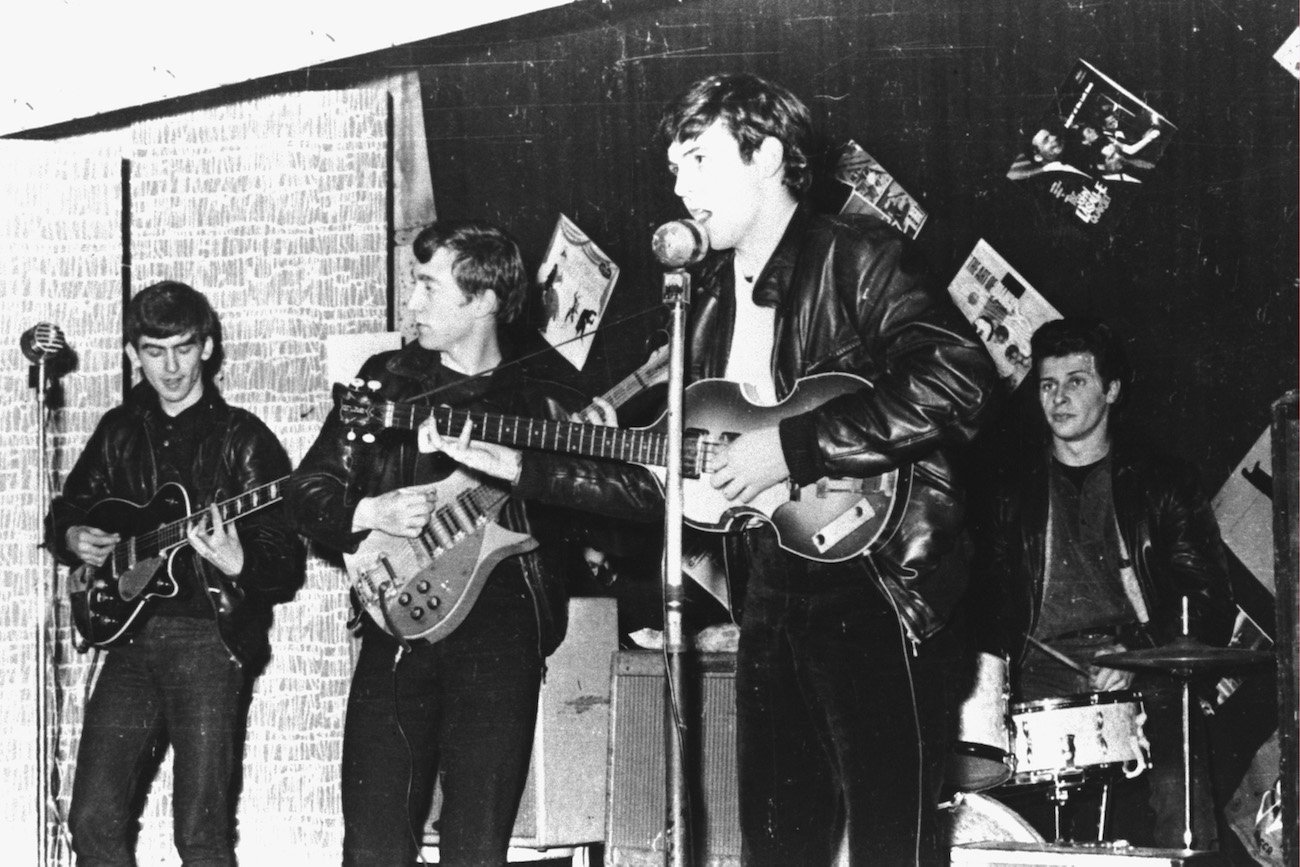
The Beatles Were so Poor in Their Early Days They Needed Their Girlfriends to Hold Their Microphones on Broom Handles
In their early days, The Beatles couldn’t afford a drummer, much less a couple of microphone stands because they were so poor. Their biggest priority was establishing themselves. The money came later. They’d perform anywhere promoters wanted them, even for free.

The group accepted any offer that allowed they to perform for an audience
John Lennon and Paul McCartney met at a village fair in 1957. They started playing in John’s band, The Quarrymen. A year later, Paul suggested John hear George Harrison, one of his schoolmates, play. George auditioned and joined the band. They named themselves Johnny and the Moondogs.
According to Joshua M. Greene’s Here Comes The Sun: The Spiritual And Musical Journey Of George Harrison, the small group of guitarists took any gigs that came their way, whether paid or not.
Greene wrote, “If a sponsor complained about their not having a drummer, they would argue that the rhythm was ‘in the guitars.’ Their ambition knew no limits—any venue would do, including men’s clubs, pubs, and amateur competitions.”
Then, they changed their name to The Silver Beetles after receiving an offer for a two-week gig in Scotland. They enlisted John’s art college buddy, Stuart Sutcliffe, to play bass and a drummer who worked at a nearby bottling company.
“The tour turned out to be a depressing string of one-night stands, scarce food, and an abundance of misfortunes,” Greene wrote. “A near-fatal car accident, coldwater flats, and meager publicity brought the tour to a less than glamorous end, and they returned to Liverpool disappointed and hungry but not defeated.”
The Beatles were so poor they needed their girlfriends to hold their microphones on broom handles
Fortunately, The Silver Beetles weren’t down for long. Allan Williams, the local coffee bar owner who also managed a few bands, offered the group a slot at his club, the Jacaranda. Williams had no idea how desperate the soon-to-be Beatles were or how poor.
“The night they first played here,” Williams said (according to Greene), “George came up to me earlier in the day—he was only seventeen at the time—and said, ‘Hey, Al, have you got a broom?’ I told him the floor was clean enough, but he said, ‘and a mop as well?’
“I found out why that evening. You see, they were so poor in those days that they didn’t have microphone stands. Their girlfriends used to tie the mikes on the broomsticks and they’d be sitting in the front row holding up these brushes and things all night long.”
A few weeks later, Williams arranged for the Silver Beatles to play backup for Janice, a stripper who only disrobed to live music. It was one of their strangest gigs, but at least they were getting some good practice and establishing themselves as a live act.
However, Williams booked them an even stranger gig in Hamburg, Germany.
The Beatles continued to be poor
When Williams arranged for The Beatles to travel to Hamburg, they got Pete Best to join on the drums. Their new residency paid them more than their parents’ salaries. So, for a time, The Beatles weren’t as poor. Their six-week contract was extended by popular demand, and they started earning 15 pounds a week.
While The Beatles performed long all-night sets in Hamburg, they honed their performing skills. Soon their act was earning a lot of attention. However, their first stint in Hamburg ended badly. Authorities found out George was only 17 years old and kicked him out of the country. The rest of the band followed.
Back home in Liverpool, the group met disc jockey Bob Wooler, who offered them a gig at a dance. After that, The Beatles started performing at Wooler’s club, The Cavern Club, where they eventually got a residency. At The Cavern Club, their future manager, Brian Epstein, first saw them play. He hatched a plan to manage them and soon found them a record deal.
After that, The Beatles weren’t so poor anymore. They didn’t make as much money as they should have due to Epstein’s naive financial strategies. However, The Beatles didn’t have to worry about money after that.


